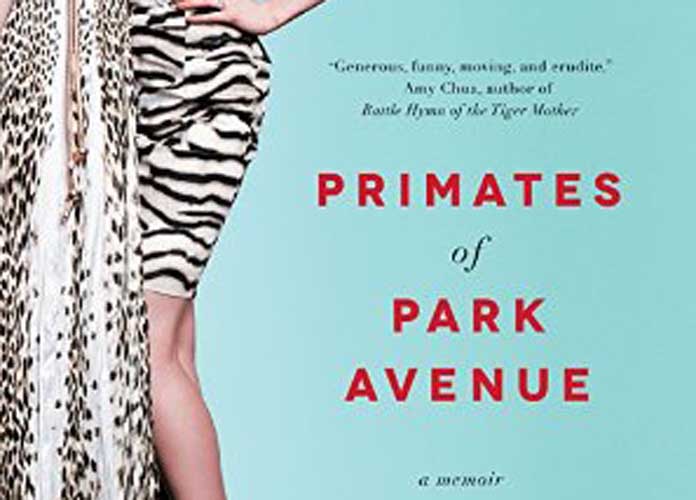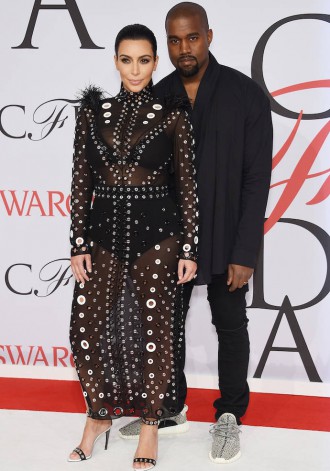‘Primates Of Park Ave’ Review: Tale Of Upper East Side Mothers Makes For Easy Read But Lacks Insight

2.5/5
With Primates of Park Ave: A Memoir, author Wednesday Martin has attempted to capitalize on the resurgent fetishization of Manhattan’s enclaves of extreme wealth and privilege to create a hybrid anthropological study/tell-all, confessional memoir about life as a stay-at-home mother in the Upper East Side. Living in our 21st century Gilded Age, I can’t think of anything we need more than a story told by an outsider infiltrating the ranks of the top 1% of the 1% to expose their secrets and misdeeds and even their frail humanity, but this is not that book.
Wednesday Martin is no outsider, no matter how much she tries to sell the reader on that idea in the beginning of the book; this is the story of a rich, highly educated white woman moving from one of the wealthiest sections of New York — and thus the country and the entire world — with her children and her financier husband to an even wealthier part of New York, where she struggles to find her place among even richer women with financier husbands. While much of New York City fights for a wage to be able to afford basic sustenance and shelter, Martin had to endure catty, mean women who rebuffed her overtures of friendship, struggle to get her child into the very best nursery school and embark on a challenging quest to procure a $10,000+ Birkin Hermes handbag. Some people just have to do their best and deal with the royal flush life deals them, you know?
Martin, who studied anthropology in college, introduces an anthropological framing of her experience early in the book in an attempt to elevate the text to that of a scientific study of the inhabitants and culture of the Upper East Side. Unfortunately, it immediately comes across as an insincere and downright silly gimmick. In the first section of “fieldnotes,” real estate agents are referred to as “dwelling shamans” and schools are called “learning huts.” While many of Martin’s digressions involving authentic anthropological studies are well-written summaries of their findings that may very well inspire readers to explore actual works of anthropology, they feel tangentially related to her experiences at best, and virtually irrelevant at worst. On a lavish dinner party she attended: “The magnificent, extravagant setting and impeccably dressed and made-up group couldn’t have been further from the Efe and Aka people of the Ituri Rain Forest in the Democratic Republic of Congo, or the !Kung San of the Kalahari desert.” Right, maybe next we can hear about how apples are different than oranges.
Forgetting the fact that this book has predictably been attacked for being filled with inaccuracies – because who honestly still thinks that classifying a book as a memoir is anymore a signifier of truth than “based on a true story” is at the beginning of a movie — Martin’s story does not succeed as a compelling memoir in its own right, making it quite understandable why she would choose to try and flesh it out with the anthropology angle. Sadly, two mediocrities don’t add up to a good book. Martin is the only character with any depth, and very little depth at that, as everyone else is painted with the broadest strokes imaginable. Her husband is an unknowable cipher who simply holds the purse strings and the cast of women who initially torment her are interchangeable blurs. Martin’s observations often seem rooted in her own naivete and come across as pretentious; “Like the demurral from a compliment, the confirmation of the next meetup affirmed that they were one.” Nope, it’s just a normal, human thing to mention plans to see one another again while departing company, not some esoteric practice of Manhattan socialites — nothing to see here, Martin, move along.
There’s one section, where Martin discusses the dominant role of men in the insular world she inhabits, that held some promise, but it doesn’t go far enough. “And knowing this,” she writes, “or even having an inkling of it, just sensing the disequilibrium, the abyss that separates your version of power from your man’s, could keep a thinking woman up at night.” This could have been a good transition into an intimate, even unpleasant examination of the tension in her own marriage over this very issue — you know, the kind of unflattering honesty that makes memoirs interesting — but she ends the discussion there. Throughout the book, Martin is quite happy to expose the foibles of the women around her, but she seems unwilling to turn that critical gaze inwards and thoroughly examine her own privilege and distorted set of values. It seems all too clear that Martin is a writer who is very concerned with presenting a clean, airbrushed image of herself on the page, preventing her from taking risks and revealing the darker contours of her own psyche. In my estimation, such a preoccupation with one’s image prevents any memoir or personal essay from achieving any meaningful honesty or value as a piece of literature. If you’re not willing to objectively and critically examine and portray your own character, you don’t have any business writing a memoir.
Primates Of Park Avenue is available here:
RELATED ARTICLES
Get the most-revealing celebrity conversations with the uInterview podcast!



 Click here for the 2015 CFDA Fashion Awards: Best Dressed Slideshow
Click here for the 2015 CFDA Fashion Awards: Best Dressed Slideshow




Leave a comment